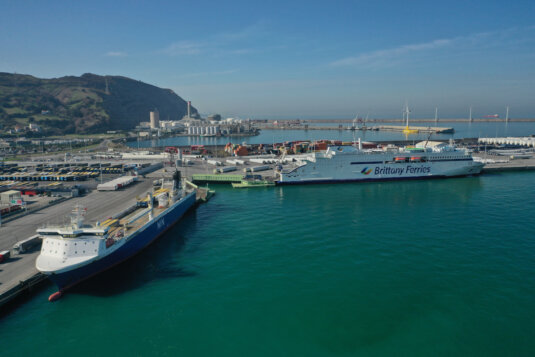Between January and June of this year, traffic through the Port of Bilbao increased by 3% compared to the same period last year. Throughput in tonnes amounted to 16.6 million, an increase of 450,000 tonnes.
Figures for liquid bulk and dry cargo were up 3% and 2%, respectively, with solid bulk increasing by 14.5% within the category of dry cargo. Containerised cargo was up 1% in terms of TEUs, whilst the volume of ro-ro freight increased by 2% in terms of UTIs (intermodal transport units). Conversely, conventional cargo, mainly steel products, fell by 6.5%.
In terms of types of goods, the biggest increases were in diesel, natural gas, soya beans, cereals, biofuels, minerals, coal and coke, petrol and machinery. Likewise, the 17% increase in fruit and vegetable traffic is what mostly accounts for the 29% increase in reefer containers (refrigerated goods). Figures fell mainly for fuel oil, crude oil, chemicals and steel products.
Throughput of special transport for loading purposes increased by 22%. The number of vessels / calls also rose by 5.4%, as did their size, with a growth of 8.5% in GTs (Gross Tonnage, a measure of vessel capacity). In total, 1,361 vessels of all types and sizes called at the port in this six-month period.
The main markets have been the United States, Russia, Brazil, the United Kingdom and Mexico. 40% of traffic through the port of Bilbao is attributable to imports and exports with Atlantic European countries, 19% with North Atlantic America, 8% with South Atlantic America, a further 8% with Atlantic Africa, 6%

with Asia Pacific and a further 6% with Indian Asia. These data once again effectively confirm that Bilbao is a multi-purpose port for both short-sea and transoceanic traffic.
Finally, the number of passengers passing through the port rose to 95,908, 13% more than in June last year. Figures were up for both ferry (18%) and cruise ship (9%) passengers. So far this year, 77 ferries to the United Kingdom and Ireland and 34 cruise ships have called at the port.

 Port access
Port access